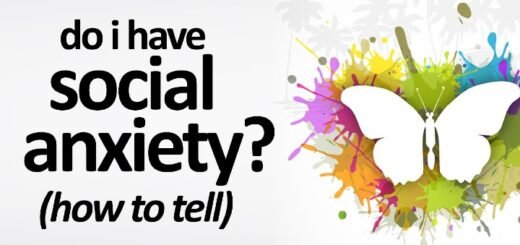Cultural Impacts on Social Phobia in Kiwi Kids
Understanding the nuances of social phobia in New Zealand’s diverse cultural landscape is crucial, especially when it comes to Kiwi kids. ‘Social phobia_1‘ can manifest differently across various cultural groups, influenced by factors such as family values, community expectations, and social norms. These cultural elements shape how children express anxiety in social situations, impacting their daily interactions and overall development.
In New Zealand, where cultural diversity is a hallmark, recognizing these influences is essential for effective intervention and support. The unique experiences of Kiwi kids with social phobia underscore the importance of tailored approaches that consider cultural context. For a deeper understanding of how social phobia affects children in this setting, resources like this guide offer valuable insights into addressing the symptoms and fostering resilience among affected youth.
Understanding Social Phobia in Kiwi Kids
Social phobia, also known as social anxiety disorder, is a prevalent mental health issue among children and adolescents in New Zealand. While the symptoms can manifest similarly across different cultures, the underlying cultural factors play a significant role in how these symptoms are expressed and experienced. In Kiwi kids, social phobia may present through intense fear of social situations, avoidance behaviors, and physical symptoms like sweating or trembling. For many children, the fear of being judged or embarrassed in social interactions can be debilitating. Recognizing these symptoms early allows parents and educators to provide supportive interventions.
New Zealand’s diverse cultural landscape, including Māori, Pasifika, and European influences, can affect the way social phobia symptoms are perceived and addressed. For example, Māori children may experience social anxiety in different contexts due to cultural expectations around community engagement and whānau (family) involvement. Understanding these cultural nuances is crucial for effective support. By focusing on local resources, such as those available at Social Phobia NZ, parents can find information tailored to the unique needs of Kiwi kids experiencing social phobia.
Cultural Expectations and Their Role in Social Anxiety
Cultural expectations significantly influence how children perceive social interactions and, consequently, how social phobia manifests. In New Zealand, the emphasis on egalitarianism and informal communication can create pressure for children to fit in with their peers. This pressure can lead to heightened anxiety, particularly for those who may feel different due to their cultural background, appearance, or personality.
For instance, Māori cultural values emphasize community and collective identity, which can intensify feelings of isolation for a child struggling with social phobia. They may feel the weight of expectations to participate in group activities or contribute to community events, which may exacerbate their anxiety. Conversely, children from more individualistic backgrounds may feel pressure to achieve personal recognition, leading to performance-related anxiety.
To address these cultural pressures, it is vital for parents and educators to foster open discussions about social fears and cultural identity. Encouraging children to express their feelings and providing reassurance can help alleviate anxiety. Resources from Social Phobia NZ can offer strategies to help Kiwi kids navigate these cultural expectations while managing their social anxiety.
The Role of Family Dynamics in Social Phobia
Family dynamics play a crucial role in the development and manifestation of social phobia symptoms in children. In New Zealand, family structures can vary widely, from traditional nuclear families to extended whānau systems. Understanding these dynamics is essential for addressing social anxiety effectively.
Children often model their behavior based on their parents’ attitudes and responses to social situations. If parents exhibit anxiety in social settings or emphasize performance and achievement, children may internalize these fears. In contrast, supportive family environments that encourage open communication and acceptance can help mitigate anxiety.
For Kiwi families, attending community events or participating in cultural practices can provide opportunities for children to practice social skills in a safe environment. Engaging with local organizations, such as those provided by Social Phobia NZ, can also connect families with resources and support networks tailored to their specific cultural contexts.
School Environment and Social Phobia Symptoms
The school environment is a significant factor in the expression of social phobia symptoms among Kiwi kids. Schools serve as primary social arenas where children develop friendships and social skills. However, they can also be a source of stress, particularly for those with social anxiety.
In New Zealand, schools are increasingly recognizing the importance of mental health support. Initiatives that promote inclusivity and understanding of social phobia can create a more supportive atmosphere for anxious students. For example, implementing programs that educate peers about social anxiety can foster empathy and reduce stigma.
Teachers can play a pivotal role by providing accommodations, such as allowing children to participate in group activities at their own pace or offering alternative ways to engage in class discussions. Resources available through Social Phobia NZ can help educators develop strategies to support students struggling with social anxiety, ensuring they feel safe and included in the school community.
Peer Relationships and Their Influence on Social Phobia
Peer relationships are crucial during childhood and adolescence, influencing self-esteem and overall mental health. For Kiwi kids with social phobia, forming and maintaining friendships can be particularly challenging. The fear of judgment or rejection can lead to avoidance behaviors, further isolating these children from their peers.
Cultural factors can also shape peer dynamics. For instance, New Zealand’s diverse cultural landscape means that children may interact with peers from various backgrounds, each with different social expectations. This diversity can be a source of anxiety for children who feel they do not meet specific cultural or social norms.
Encouraging inclusive peer interactions can help mitigate social phobia symptoms. Schools and community organizations can facilitate activities that promote teamwork and collaboration, allowing children to build friendships in a low-pressure setting. Parents can also encourage playdates or group activities that foster connections. Resources from Social Phobia NZ can provide strategies for helping children develop healthy peer relationships while managing social anxiety.
Community Support and Resources for Managing Social Phobia
Community support plays a vital role in helping Kiwi kids manage social phobia. In New Zealand, various organizations and services are dedicated to mental health and well-being, providing resources specifically for children experiencing social anxiety. Community initiatives can create safe spaces where children feel comfortable sharing their experiences and seeking help.
Local support groups, workshops, and counseling services can connect families with mental health professionals experienced in addressing social phobia. For example, organizations like Social Phobia NZ offer valuable resources, including information about therapy options and coping strategies tailored to the New Zealand context.
Parents can also seek out community programs that promote social skills development, such as after-school clubs or sports teams. These activities can provide children with opportunities to practice social interactions in a structured environment, helping to reduce anxiety over time.
Strategies for Parents and Educators to Support Kiwi Kids
Supporting Kiwi kids with social phobia requires a collaborative effort from parents, educators, and the community. There are several strategies that can help mitigate the symptoms of social anxiety and promote positive mental health.
1. **Open Communication**: Encourage children to express their feelings about social situations. Regular check-ins can help them feel supported and understood.
2. **Gradual Exposure**: Help children gradually face their fears by starting with low-pressure social situations. This could involve inviting a friend over or participating in small group activities.
3. **Modeling Positive Behavior**: Parents and educators should model healthy social interactions and coping strategies. Demonstrating how to handle anxiety in social situations can provide children with valuable tools.
4. **Cultural Sensitivity**: Be aware of the cultural factors that may influence a child’s experience of social anxiety. Tailor support to each child’s unique background and needs.
5. **Utilizing Resources**: Leverage the resources available through Social Phobia NZ for additional strategies and support tailored to New Zealand children.
By creating a supportive environment that acknowledges the cultural factors at play, parents and educators can help Kiwi kids navigate social phobia and build their confidence in social situations.
FAQs
What is social phobia and how does it manifest in children?
Social phobia, also known as social anxiety disorder, is characterized by an intense fear of social situations where one may be judged or scrutinized by others. In children, this can manifest as extreme shyness, avoidance of social interactions, and physical symptoms such as sweating or trembling when faced with social scenarios.
How do cultural factors influence social phobia symptoms among Kiwi kids?
Cultural factors play a significant role in shaping the experiences and expressions of social phobia symptoms among Kiwi kids. New Zealand’s diverse cultural landscape can affect how children perceive social interactions, the expectations placed upon them, and their coping mechanisms. Cultural norms surrounding communication and social engagement can either exacerbate or alleviate symptoms of social phobia.
Are there specific cultural groups in New Zealand that exhibit higher rates of social phobia?
Research indicates that certain cultural groups in New Zealand may experience higher rates of social phobia due to factors such as migration stress, cultural identity struggles, and differing social norms. For example, immigrant children might face unique challenges that impact their social confidence, leading to increased symptoms of social phobia.
What role do parents and family dynamics play in the development of social phobia?
Parents and family dynamics are crucial in the development of social phobia. In New Zealand, parenting styles that emphasize high expectations or overprotectiveness can contribute to anxiety in children. Conversely, supportive family environments that encourage social engagement can help mitigate the symptoms of social phobia.
How can schools in New Zealand support children with social phobia?
Schools can play a vital role in supporting children with social phobia by creating inclusive environments that promote social skills development. Implementing programs that focus on emotional well-being, providing access to counseling services, and fostering peer support can help Kiwi kids feel more comfortable in social settings.
What are some effective strategies for parents to help their children cope with social phobia?
Parents can help their children cope with social phobia by encouraging gradual exposure to social situations, teaching relaxation techniques, and fostering open communication about their feelings. Additionally, seeking professional help from psychologists or counselors who understand the cultural context can be beneficial.
Are there any community resources available for families dealing with social phobia?
Yes, there are various community resources available for families in New Zealand dealing with social phobia. Organizations such as Mental Health Foundation NZ and local counseling services provide support, educational resources, and workshops aimed at helping children and their families navigate social anxiety challenges.
References
- Cultural Factors and Social Anxiety – American Psychological Association – This article discusses how cultural influences shape the experience and expression of social anxiety, providing insights relevant to diverse populations, including children.
- Cultural Influences on Anxiety Disorders – Taylor & Francis Online – This research paper explores the role of cultural contexts in the development of anxiety disorders, with implications for understanding social phobia in children.
- Cultural Considerations in the Treatment of Social Anxiety Disorder – National Institutes of Health – This review highlights the importance of cultural factors in the diagnosis and treatment of social anxiety disorder, particularly in children.
- Cultural Identity and Anxiety in Children – Te Papa – This blog post discusses how cultural identity can affect psychological well-being in Kiwi kids, shedding light on social anxiety issues.
- Social Phobia New Zealand – Social Phobia Support Group – This local organization provides resources and support for individuals affected by social phobia, focusing on New Zealand’s cultural context and its impact on mental health.



